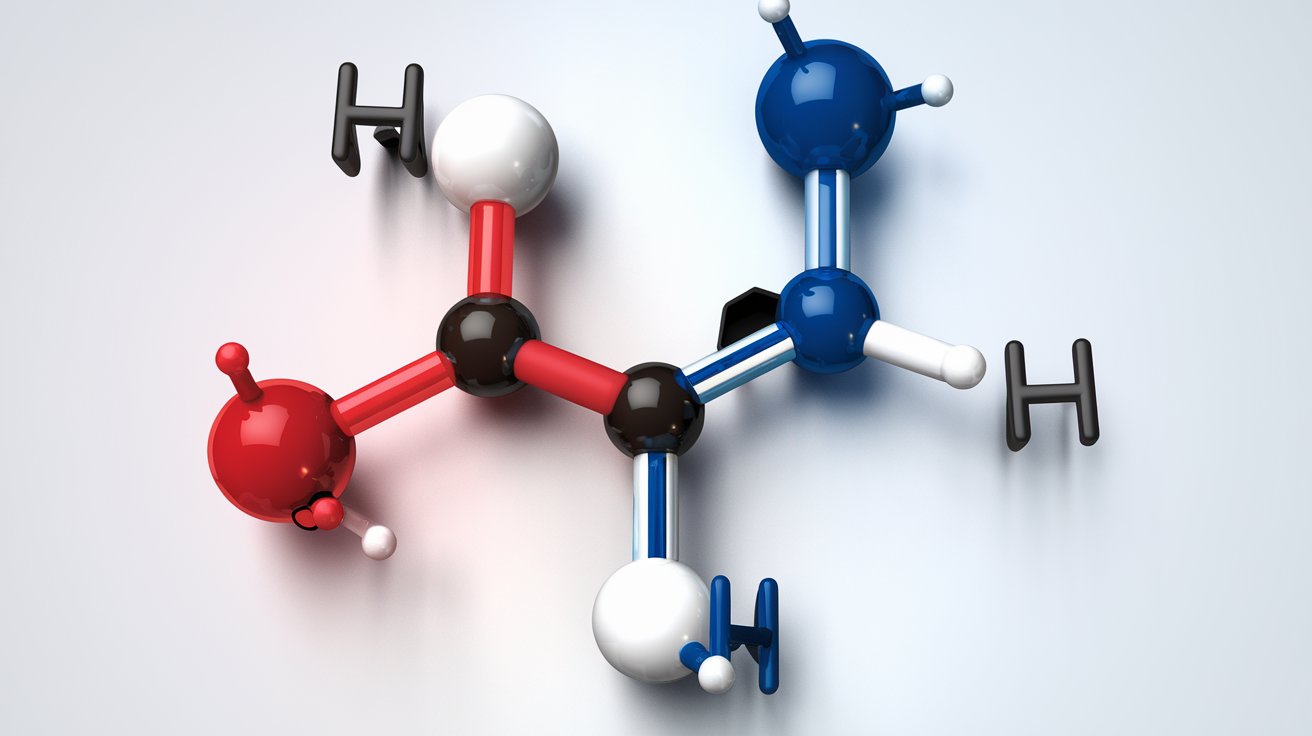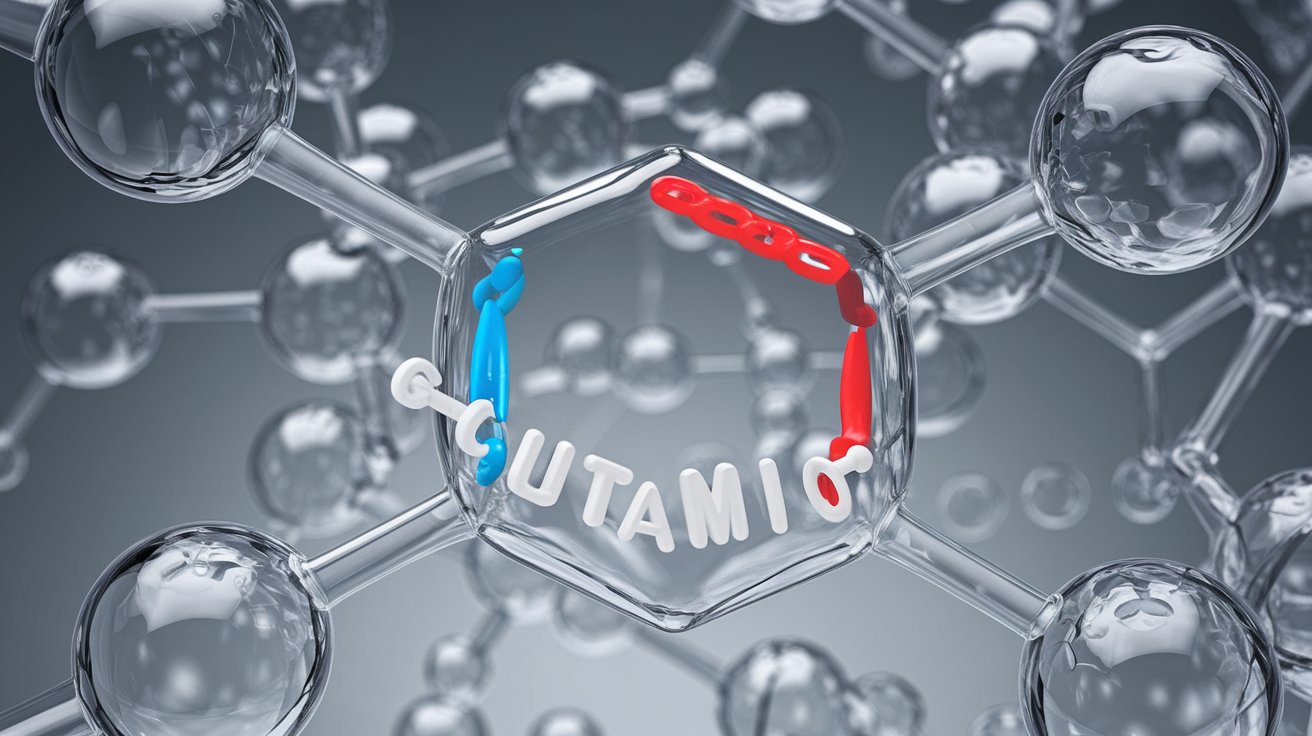
Glutamic acid is a vital amino acid that plays a crucial role in our bodies. Ever wondered why it's so important? This little molecule is a building block of proteins and a key player in brain function. Found in foods like meat, dairy, and some vegetables, it’s also a flavor enhancer in many dishes. Glutamic acid is not just about taste; it’s involved in metabolism and neurotransmission. Curious about how it impacts your health or why it's in your favorite snacks? Let’s dive into 50 fascinating facts about this essential amino acid that you probably didn’t know!
Key Takeaways:
- Glutamic acid, found in foods like cheese and soy sauce, supports brain function, muscle health, and immune system, and is used in treating epilepsy and schizophrenia.
- This amino acid, abundant in the brain, is crucial for brain health, digestion, and energy production, and contributes to the umami taste in foods.
What is Glutamic Acid?
Glutamic acid is an amino acid that plays a crucial role in the body. It’s involved in various functions, from protein synthesis to brain health. Let’s dive into some fascinating facts about this essential compound.
- Glutamic acid is one of the 20 standard amino acids used by cells to synthesize proteins.
- It is classified as a non-essential amino acid because the body can produce it.
- This amino acid is found in high concentrations in the brain.
- It acts as an excitatory neurotransmitter in the central nervous system.
- Glutamic acid is involved in cognitive functions like learning and memory.
- It is a key player in the metabolism of sugars and fats.
- The amino acid helps detoxify ammonia by converting it into glutamine.
- It is abundant in foods like meat, fish, eggs, and dairy products.
- Glutamic acid is also found in plant-based foods like soybeans, mushrooms, and tomatoes.
- It is the main component of monosodium glutamate (MSG), a common food additive.
Health Benefits of Glutamic Acid
This amino acid offers numerous health benefits. From brain function to muscle health, glutamic acid is vital for overall well-being.
- Glutamic acid helps improve brain function and mental clarity.
- It supports the immune system by aiding in the production of antibodies.
- The amino acid promotes healthy digestion by stimulating stomach acid production.
- It helps in muscle recovery and growth.
- Glutamic acid can improve athletic performance by reducing fatigue.
- It aids in the synthesis of other amino acids.
- The amino acid helps maintain the health of the intestinal lining.
- It can reduce symptoms of depression and anxiety.
- Glutamic acid supports liver health by aiding in detoxification.
- It helps in the production of glutathione, a powerful antioxidant.
Glutamic Acid in Food
Glutamic acid is naturally present in many foods. Knowing which foods are rich in this amino acid can help you maintain a balanced diet.
- Parmesan cheese has one of the highest concentrations of glutamic acid.
- Seaweed is another excellent source of this amino acid.
- Soy sauce contains significant amounts of glutamic acid.
- Walnuts are a good plant-based source.
- Chicken and turkey are rich in glutamic acid.
- Eggs, especially the whites, contain this amino acid.
- Beef and pork are also high in glutamic acid.
- Dairy products like milk and yogurt are good sources.
- Mushrooms, particularly shiitake, are rich in glutamic acid.
- Tomatoes, especially when cooked, have high levels of this amino acid.
Glutamic Acid in Medicine
Glutamic acid has various applications in the medical field. Its role in health and disease management is significant.
- It is used in the treatment of epilepsy.
- Glutamic acid supplements can help manage schizophrenia.
- The amino acid is used in the treatment of muscular dystrophy.
- It can help alleviate symptoms of Parkinson’s disease.
- Glutamic acid is used in the management of sickle cell anemia.
- It helps in the treatment of ulcers by promoting stomach lining health.
- The amino acid is used in the management of hypoglycemia.
- It can help reduce symptoms of alcohol withdrawal.
- Glutamic acid is used in the treatment of ADHD.
- It helps in the management of chronic fatigue syndrome.
Fun Facts about Glutamic Acid
Beyond its health benefits and medical uses, glutamic acid has some interesting trivia associated with it.
- Glutamic acid was first isolated from wheat gluten in 1866.
- The amino acid was discovered by German chemist Karl Heinrich Ritthausen.
- It is the most abundant neurotransmitter in the human brain.
- Glutamic acid is responsible for the umami taste in foods.
- The amino acid is used in the production of biodegradable plastics.
- It plays a role in the synthesis of proline, another amino acid.
- Glutamic acid is involved in the Krebs cycle, a key energy-producing process.
- The amino acid can be converted into gamma-aminobutyric acid (GABA), an inhibitory neurotransmitter.
- It is used in the production of certain medications and supplements.
- Glutamic acid is essential for the proper functioning of the central nervous system.
The Final Scoop on Glutamic Acid
Glutamic acid plays a crucial role in our bodies. It’s a key player in brain function, helping with memory and learning. Found in many foods, it’s a natural part of our diet. This amino acid also helps with digestion by producing stomach acid. It’s used in medicine to treat various conditions, from epilepsy to muscular dystrophy. Athletes often use it to boost performance and recovery.
Despite its benefits, some people worry about MSG, a glutamic acid derivative. While generally safe, some report sensitivity. Understanding glutamic acid helps us make informed choices about our health. Whether you’re a student, athlete, or just curious, knowing these facts can be beneficial.
So, next time you hear about glutamic acid, you’ll know it’s more than just a food additive. It’s a vital part of our health and well-being.
Frequently Asked Questions
Was this page helpful?
Our commitment to delivering trustworthy and engaging content is at the heart of what we do. Each fact on our site is contributed by real users like you, bringing a wealth of diverse insights and information. To ensure the highest standards of accuracy and reliability, our dedicated editors meticulously review each submission. This process guarantees that the facts we share are not only fascinating but also credible. Trust in our commitment to quality and authenticity as you explore and learn with us.


